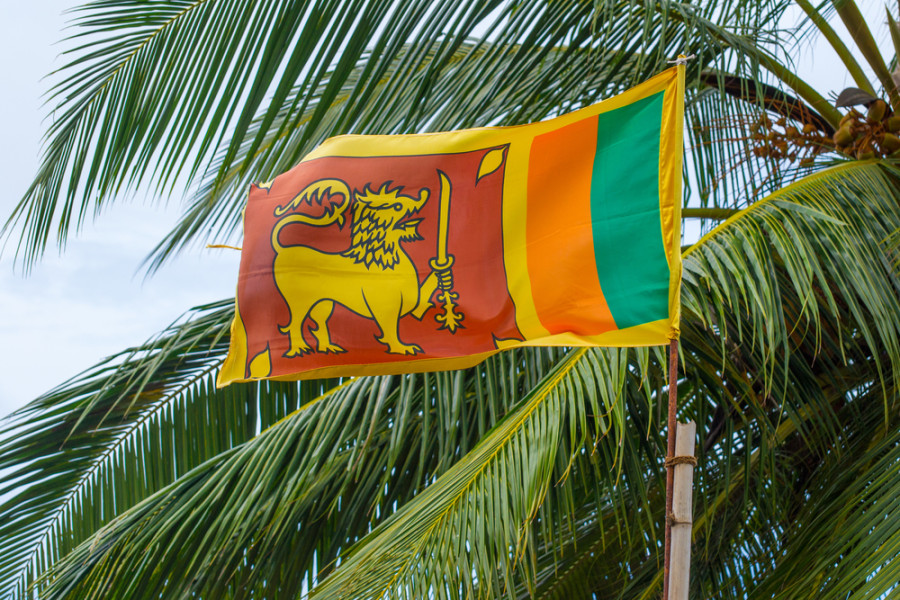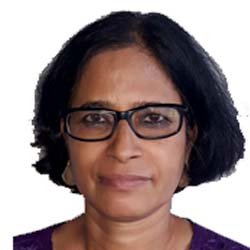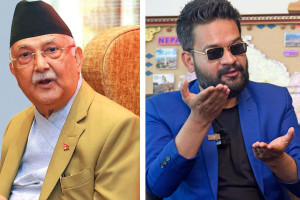Columns
Growing trouble with war crimes
The discovery of mass graves in Sri Lanka has prevented the state from burying the truth.
Smruti S Pattanaik
On September 25, Sri Lanka will face the United Nations Human Rights Council (UNHRC) on the accountability process for the alleged war crimes during the last phase of the country’s civil war. During the period, thousands perished, including those who were assured security in the state-designated ‘no fire zone’. In the 60th regular session of the UNHRC held on September 8 at Geneva, the Human Rights High Commissioner asked Sri Lanka to constitute international accountability mechanisms to look into the violation of human rights to ensure accountability is guaranteed. Sri Lanka’s brush with human rights violations continues as the UNHRC is persistently pursuing the matter of rights violations.
Discovery of mass graves
The government of Sri Lanka has been insisting that there was “zero civilian casualty” during the military operation in 2009 against the Liberation Tiger of Tamil Eelam (LTTE). Families of many who have been missing, including those who surrendered to the Army to buy safety for their lives, await answers from the State on the whereabouts of their loved ones. In this context, the recent discovery of mass graves in Chemmani, including skeletal remains of less than 10-month-old babies, attests to the brutality of the war. However, this is not the first time mass graves were discovered. Investigations into mass graves discovered in Mannar, Kokkuthoduvai and Thiruketheeswaram have not reached any conclusion on the identities of the people and how they were killed.
The Ministry of Justice and the Office of Missing Persons (OMP), which was established in 2017, has not been effective. Families of those disappeared have not been involved in the exhumation process, and the process was not of international standard. The High Commission in the 60th session of the Human Rights Council meeting said, “Impunity can be a second form of violence that perpetuates cycles of harm. The demands of victims and survivors must be addressed. Their voices must guide the Government’s policies on accountability, truth, justice and reparation.” High Commissioner Volker Turk recommended an independent judicial mechanism with the inclusion of “independent special counsel” to ensure impartiality. The Core Group on Sri Lanka, led by the UK, has been at the forefront of pressuring for the implementation of various UNHRC recommendations.
UNHRC and Sri Lanka
Post war, Sri Lanka has contested the death figure of the final phase of the war, in which its military pounded on Tamils who had taken refuge in the no fire zone. Celebration of victory over the Liberation Tigers of Tamil Eelam (LTTE) after 25 years of unwinnable civil war and demonisation of the Tamil community as terrorists or their sympathisers reflected an impunity that seeped through the state system. Western countries sponsored a resolution asking for accountability in the human rights violations.
The government of Sri Lanka instituted the Lessons Learnt and Reconciliation Commission in 2010 as a domestic mechanism while rejecting Western countries’ call for accountability. In 2010, the then Secretary General of the UN, Ban Ki-moon, appointed the Darusman Panel, which submitted its report in 2011. In 2013, the UN High Commissioner Navi Pillay also accused the Sri Lankan government of intimidating people who came to meet her, recommending an independent international enquiry mechanism as the domestic mechanism has failed. In 2015, the UN passed a resolution to investigate war crimes and appointed a 12-member team, which included two forensic experts to hold an enquiry. Sri Lanka rejected the proposed appointment of foreign judges to the enquiry commission. In 2015, the government, however, decided to co-sponsor the UNHRC resolution 30/1, which drew sharp domestic criticism from the then Sirisena government that such an investigation is an interference in the internal affairs of Sri Lanka.
The government appointed retired judge Maxwell Paranagama to investigate the human rights violations, whose report was submitted to Sri Lanka’s Parliament in October 2015. This report, for the first time, acknowledged credible evidence of rights violations as was brought out by international media. It interestingly recommended an internationally backed judicial inquiry. In 2020, after Gotabaya Rajapakse assumed power, Sri Lanka withdrew from co-sponsoring the UNHRC resolution on accountability, terming the co-sponsorship as ‘betrayal’ of war heroes. In 2021, as mandated by the UN resolution 46/1, the Office on Sri Lanka and Accountability Project (OSLAP) was established.
The relatives of missing persons formed the Association for Relatives of the Enforced Disappearances to pressure the government. The government headed by Wickramasinghe established the Office for National Unity and Reconciliation, which was gazetted in September 2023, followed by the bill on the Commission for Truth, Unity and Reconciliation gazetted on January 1, 2024. Most of the Commissions, however, failed to address the grievances of the Tamils. As a result, the Tamils have looked towards international support to make the Sri Lankan government accountable.
The NPP government and Tamil grievances
There is an expectation that unlike the previous governments that were reluctant to hold an inquiry and enforce accountability, the National People’s Power (NPP) government is committed to ending the culture of impunity and ensuring accountability as pledged in its electoral manifesto. Moreover, the people of northern province also voted for the NPP with the hope that this government would deliver. The government has decided to abolish the draconian law, the‘ Prevention of Terrorism Act’, that has been misused in the past. Yet, like its predecessors, it has rejected any international accountability mechanism.
The discovery of mass graves only points to the bloody violence that earmarked Sri Lanka’s civil war. The end of the war has not resulted in political reconciliation, as the root cause of the conflict has not been addressed. The issues of political devolution, provincial autonomy and accountability for massive human rights violations committed by the Sri Lankan troops continue to dominate the political landscape. Successive governments were reluctant to address the issue of missing persons, adding to the distress of family members of those missing. Though the Rajapakse brothers—Mahinda and Gotabaya—have denied any responsibility for those missing, in 2020, when Gotabaya assumed the Presidency, he acknowledged the long-believed truth that those missing during the last phase of the war are, in fact, dead.
Though human rights issues have been used as a geopolitical instrument by the international community to punish certain countries, in the context of Sri Lanka, failure to establish a credible domestic mechanism has added to its woes. The government continues to shield the armed forces from accountability and also keeps a close watch on the family members of those missing. The discovery of mass graves has not helped the government to bury the truth. It raises more questions on the conduct of war and state accountability to its marginalised citizens.




 9.12°C Kathmandu
9.12°C Kathmandu















